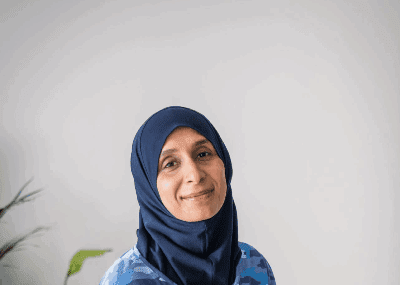
Ectopic Pregnancy: What You Need to Know
An ectopic pregnancy is a serious medical condition that occurs when a fertilised egg implants itself outside the main cavity of the uterus. The most common site for this abnormal implantation is the fallopian tubes. Though it can also occur in the cervix, ovary, or abdominal cavity. Unlike a typical pregnancy, an ectopic pregnancy cannot progress normally. The egg cannot survive in these locations, and if left untreated, the condition can lead to life-threatening complications.
Being informed about ectopic pregnancies, what causes them, symptoms, treatment options, and emotional impact, can help women seek timely support and manage this challenging experience with resilience and care.
What is an ectopic pregnancy?
In a healthy pregnancy, a fertilised egg travels down the fallopian tube and attaches to the uterine lining, where it can grow and develop safely. However, in around 1-2% of pregnancies (roughly 1 in every 50), the fertilised egg implants outside the uterus, resulting in what’s known as an ectopic pregnancy. The fallopian tube is the most common site, but, in rare cases, the egg may implant in the cervix, ovary, or abdominal cavity. An ectopic pregnancy is considered a medical emergency that requires prompt treatment to prevent serious health risks for the mother.
What causes an ectopic pregnancy?
Several factors may increase the risk of an ectopic pregnancy:
- A history of previous ectopic pregnancies significantly raises the likelihood of recurrence.
- Tubal damage, often resulting from infections like pelvic inflammatory disease (PID), can create scarring that obstructs the egg’s journey to the uterus
- Surgical procedures involving the fallopian tubes, such as those for endometriosis or tubal sterilisation
- Fertility treatments, including in vitro fertilisation (IVF)
- Lifestyle factors like smoking
- In rare cases, the use of intrauterine devices (IUDs)
While ectopic pregnancies are uncommon, knowing these risk factors can be valuable for understanding one’s reproductive health.
Symptoms
Symptoms of an ectopic pregnancy often arise between the fourth and twelfth weeks. Early signs may resemble those of a normal pregnancy, such as a missed period and nausea. However, more specific signs that require immediate medical attention include:
- Sharp or cramping abdominal pain, which may feel concentrated on one side
- Unusual vaginal bleeding, which often starts and stops, and may be watery and dark brown in colour
- Shoulder tip pain, where your shoulder ends and your arm begins
- Pain or pressure in your bottom during bowel movements
- Pain during urination
- Diarrhoea
In rare cases, an ectopic pregnancy can cause a rupture in the fallopian tube. Signs of a rupture include a combination of:
- Sharp, sudden and intense pain in your tummy
- Feeling very dizzy or fainting
- Feeling sick
Diagnosis
Diagnosing an ectopic pregnancy involves various tests to identify its location and assess health risks. Common diagnostic methods include:
- Transvaginal ultrasound: Often the primary tool for diagnosis, this involves inserting a small probe into the vagina to create close-up images of the reproductive organs.
- Blood tests: Measuring levels of the pregnancy hormone human chorionic gonadotropin (hCG) is also important. Ectopic pregnancies can show slower increases or plateaus. Blood tests can also help determine the best treatment plan.
- Laparoscopy: If diagnosis remains unclear, keyhole surgery may be performed to examine the uterus and fallopian tubes directly. If an ectopic pregnancy is found, surgical instruments may be used to remove it, preventing the need for additional surgery later on.
Treatment options
Since ectopic pregnancies cannot result in a viable birth, treatment is essential to prevent complications. The best treatment option depends on various factors, such as symptoms, the pregnancy’s size, and hCG levels. Common treatments include:
- Expectant management: If the pregnancy is very small and no severe symptoms are present, close monitoring may be sufficient. Regular blood tests track hCG levels until they decrease to zero. This option avoids medication or surgery but carries a small risk of complications.
- Medication (Methotrexate): For early-detected ectopic pregnancies, this medication halts the embryo’s growth and is given as a single injection. Regular blood tests monitor hCG levels to ensure the treatment’s effectiveness. Women treated with methotrexate must avoid pregnancy for at least three months, as the drug can affect future pregnancies.
- Surgery: In cases where the ectopic pregnancy is more advanced or internal bleeding has occurred, surgery is often necessary. The most common approach is a laparoscopy, where small incisions are made to remove the affected fallopian tube if it appears damaged. Removing the tube is usually the most effective treatment and generally doesn’t impact future fertility. If the fallopian tube has ruptured, emergency surgery (laparotomy) may be required to stop internal bleeding and repair the tube if possible.
Future fertility
Many women successfully conceive after treatment for an ectopic pregnancy. However, future pregnancies may require early ultrasound scans to ensure proper implantation. If one fallopian tube remains healthy, it is often still possible to conceive naturally.
Aftercare and emotional support
Recovering from an ectopic pregnancy, both physically and emotionally, can be challenging. Physically, recovery time may vary depending on the treatment method, with laparoscopy typically allowing discharge within a few days. Full recovery may take 4 to 6 weeks.
Emotionally, experiencing an ectopic pregnancy can feel deeply distressing. It is a pregnancy loss in its own right, and it is completely natural to grieve. Seeking support from loved ones, joining support groups, or speaking with a mental health professional can be helpful during this time.
If a loved one experiences a miscarriage, offering gentle, supportive care can make a meaningful difference. Here are some ways to provide comfort during this difficult time:
- Support: Sometimes, quiet companionship and a warm hug are all that’s needed. Avoid rushing to offer explanations or reminders that “it’s a test” or “it wasn’t meant to be.” Right now, they need your presence and reassurance. A simple hug can help reduce stress by lowering cortisol levels, allowing them to feel held and supported.
- Allow space for grief: Grief has many stages, including anger, sadness, and sometimes even laughter. Encourage them to express their feelings freely, whether through talking, crying, or simply sitting in silence. When the raw emotions begin to settle, gentle words of comfort and guidance may be more easily received.
- Acknowledge their loss: Avoid pretending the baby didn’t exist. Acknowledging the loss, even with a simple “ʾinnā li-llāhi wa-ʾinnā ʾilayhi rājiʿūn,” can be incredibly comforting. It’s a way of saying, “I see your pain, and I acknowledge the preciousness of this life, however brief.”
- Respect their needs: Each person feels differently. Some may welcome company and prefer someone to bring over food to create a comforting distraction. Others may need solitude. Recognise their preference, and let them know you’re available whenever they’re ready, either with a message or a small token of support, like flowers.
- Support for partners too: Remember that fathers feel the loss deeply too. While they may not go through the physical experience, they share in the emotional pain and loss. Extend your support to them, even if it’s a simple check-in to show you care.
- The power of du’a: Don’t underestimate the comfort that prayer can bring. Du’a (supplication) offers a way to seek peace and resilience for them and for you. Even if you can’t be there physically, pray for them, knowing that your heartfelt prayers can be a source of strength during their journey.
To every parent who has experienced miscarriage or the loss of a child — please know, you are not alone. Allah ﷻ sees your sorrow, hears your silent prayers, and knows the depths of your pain. He promises reward in this life and the next for every hardship patiently endured, and you will reunite with your child, in sha Allah! You are held by the mercy of your Lord, and supported by those who love you, even if from afar. Lean on your community, and reach out when you feel ready. You do not have to carry this burden alone.
Remember, even the most beloved to Allah, the Prophet Muḥammad ﷺ, experienced the heartbreak of losing a child. When his son Ibrāhīm was taking his final breaths, the Prophet ﷺ held him close, kissed him, and wept. When asked about his tears, he replied, “This is mercy.” And then he said: “Verily, the eyes shed tears and the heart is grieved, but we do not say except what pleases our Lord. Indeed, we are saddened by your departure, O Ibrāhīm.“ (Ṣaḥīḥ al-Bukhārī 1303).
Let this be your reminder: grief is not a weakness; it is a sign of love, and a form of mercy.
Final thoughts
Ectopic pregnancy is a serious condition that requires prompt medical attention. By understanding the risk factors, symptoms, and treatment options, women can better protect their health and improve their chances of future successful pregnancies.
If you’re at risk or experiencing concerning symptoms during pregnancy, don’t hesitate to seek immediate care. Early detection saves lives and preserves future fertility.
Remember: Your experience is valid. Your emotions are real. And your journey toward healing is supported by both medical care and divine mercy.
May Allah ﷻ surround you with strength, ease, and healing. May He grant you comfort in hardship, reward for your patience, and open doors to new beginnings with compassion and light.

